Introduction
Pragmatism, often referred to as the art of the possible, is a fundamental principle that has significantly shaped American politics and policy-making. It embodies the idea that solutions should be based on practicality, facts, and a willingness to compromise to address the pressing issues facing the nation. In this article, we delve into the role of pragmatism in American politics and how it has influenced the formulation of policies that impact millions of lives.
Pragmatism, often referred to as the art of the possible, is a fundamental principle that has significantly shaped American politics and policy-making. It embodies the idea that solutions should be based on practicality, facts, and a willingness to compromise to address the pressing issues facing the nation. In this article, we delve into the role of pragmatism in American politics and how it has influenced the formulation of policies that impact millions of lives.
At its core, pragmatism in American politics is about getting things done in the real world. It’s the recognition that ideological purity, while admirable in theory, can often hinder progress when it comes to governing a diverse and complex nation like the United States. Instead, pragmatism encourages policymakers to assess the facts, consider multiple perspectives, and find common ground to advance the interests of the country.
One of the most significant aspects of pragmatism in American politics is its adaptability. It allows for policy adjustments in response to changing circumstances and new information. This flexibility has been instrumental in addressing a wide range of challenges, from economic crises to social issues. For example, during the Great Depression, Franklin D. Roosevelt’s New Deal was a pragmatic response to the urgent need for economic recovery. It combined relief programs, regulatory reforms, and infrastructure projects to tackle the multifaceted crisis.
Moreover, pragmatism has played a pivotal role in fostering bipartisan cooperation. In a political landscape often characterized by polarization, finding common ground can be challenging. However, history has shown that when leaders are willing to set aside strict ideological stances and work pragmatically, meaningful and lasting solutions can emerge. The Civil Rights Act of 1964 is a testament to this, as it required bipartisan support to become law and marked a crucial step in addressing racial inequality.
In the 21st century, pragmatism continues to shape American politics in various ways. It is evident in the development of healthcare policy, where debates about the Affordable Care Act reflected a pragmatic approach to expanding access to healthcare while working within the existing system. Additionally, addressing climate change, a global crisis with far-reaching consequences, demands pragmatic solutions that balance environmental concerns with economic realities.
In conclusion, pragmatism remains a cornerstone of American politics and policy-making. It empowers leaders to navigate the complexities of governance and find practical solutions to the challenges of our time. As we explore the role of pragmatism in American politics in this article, we will examine specific historical examples, contemporary applications, and the ongoing debate surrounding its efficacy in addressing the pressing issues facing the nation. Ultimately, the art of the possible is not just a political strategy; it’s a fundamental principle that has helped shape the United States into what it is today.
Don’t stop here; you can continue your exploration by following this link for more details: How Green-Party Success Is Reshaping Global Politics | Council on …
Pragmatism has deep roots in American political thought. It draws inspiration from figures like Benjamin Franklin, who famously said, “Well done is better than well said.” This pragmatic approach to problem-solving prioritizes action over ideology and seeks to find common ground in the pursuit of solutions.
Pragmatism, a fundamental aspect of American political thought, has been nurtured by the wisdom of influential figures such as Benjamin Franklin, whose timeless aphorism, “Well done is better than well said,” encapsulates the essence of this pragmatic tradition. This enduring approach to addressing societal challenges prioritizes tangible action over abstract rhetoric and transcends partisan divisions in the relentless quest for effective solutions.
In the footsteps of Franklin, the pragmatic mindset embodied in American political philosophy emphasizes the practical application of ideas, values, and policies. It acknowledges that, while words can inspire and motivate, true progress is achieved through deeds that benefit society as a whole. This pragmatic approach champions results over empty promises, favoring tangible accomplishments that enhance the well-being of the nation.
Moreover, the essence of pragmatism in American politics lies in its capacity to bridge ideological divides. In a polarized world, where differing perspectives often clash, pragmatism encourages a search for common ground. It recognizes that, beneath the surface of ideological differences, there are shared objectives and aspirations that can serve as the foundation for bipartisan cooperation. By focusing on what works rather than what aligns with a specific ideology, pragmatic leaders can bring diverse stakeholders together to forge consensus and enact policies that genuinely benefit the nation.
In sum, the roots of pragmatism in American political thought, as exemplified by Benjamin Franklin’s sage advice, run deep. This pragmatic tradition prioritizes action, seeks tangible results, and fosters collaboration across ideological boundaries, making it a cornerstone of effective governance in the United States. In a world of complex challenges and dynamic social issues, the enduring wisdom of pragmatism continues to guide American leaders in their pursuit of a more just and prosperous society.
Don’t stop here; you can continue your exploration by following this link for more details: Generation Z characteristics and its implications for companies …
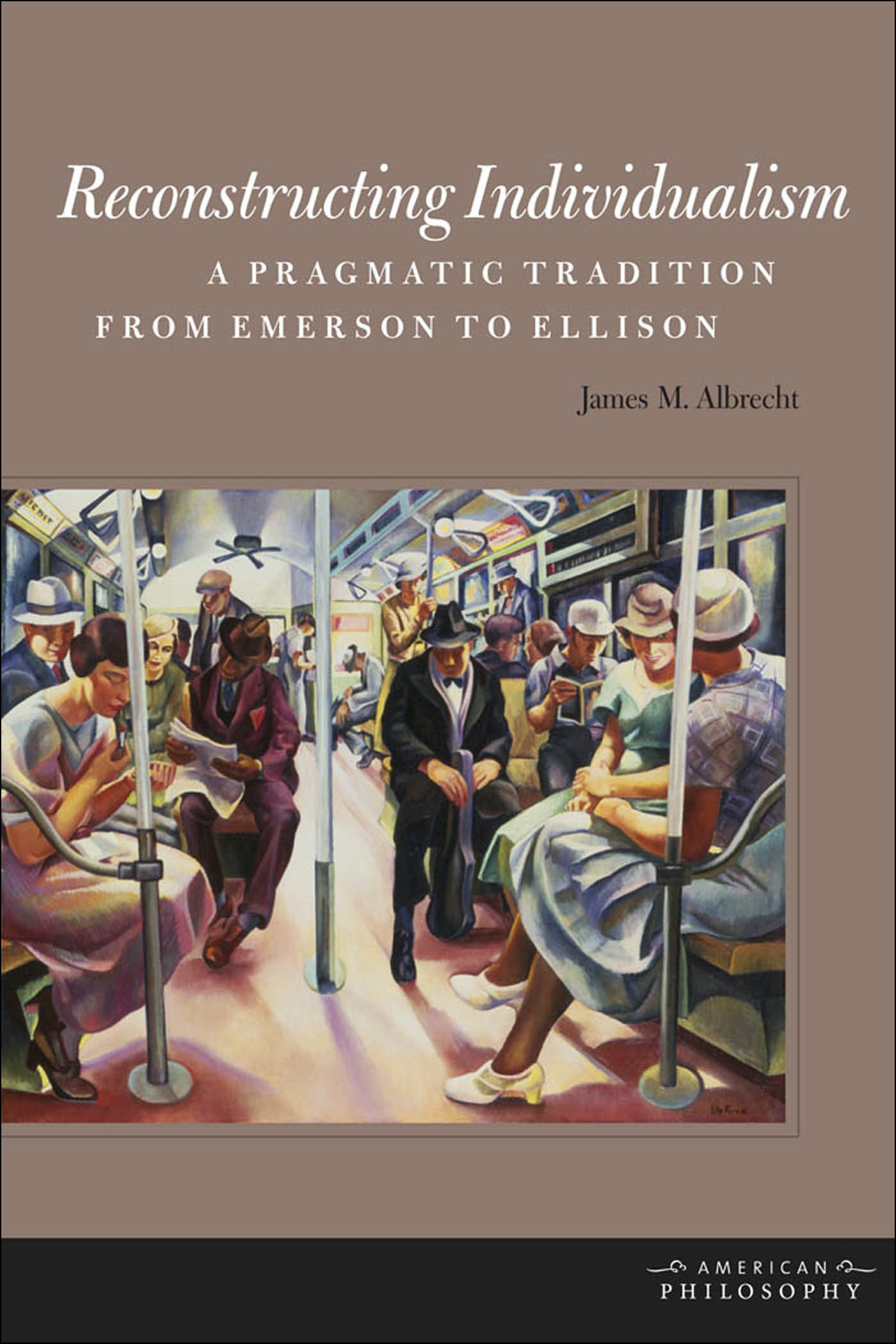
American politics has often been a battleground where competing ideals clash. Pragmatism serves as a bridge between idealism and realism, allowing policymakers to navigate the complexities of governance. While idealistic goals are essential, pragmatism recognizes that compromise and incremental progress are often necessary to achieve lasting change.
American politics has indeed been a turbulent arena, marked by the clash of divergent ideals and visions for the nation’s future. It is within this tumultuous landscape that pragmatism emerges as a valuable and indispensable tool. Pragmatism acts as a sturdy bridge connecting the lofty heights of idealism with the grounded terrain of realism, providing policymakers with a means to navigate the intricate web of governance.
Idealism fuels the aspirations of politicians and citizens alike, pushing them to envision a society where all can thrive, where justice prevails, and where the American dream is attainable for everyone. These idealistic goals are not to be dismissed; they inspire change, drive innovation, and set the North Star by which we chart our course. However, pragmatism adds a crucial layer of wisdom to the process.
In the intricate dance of politics, pragmatism acknowledges that the path to achieving these lofty ideals is rarely straightforward. The world is complex, and the diverse interests and opinions of a nation as vast as the United States can create considerable obstacles to progress. Pragmatism reminds us that compromise, negotiation, and incremental steps are often necessary to effect meaningful and lasting change.
In this light, pragmatism does not stand in opposition to idealism; rather, it complements it. It tempers idealistic fervor with a dose of reality, urging policymakers to make decisions that may not fulfill the entirety of their vision but move society in the right direction. Pragmatism recognizes that governing a nation as diverse and dynamic as the United States requires patience and the ability to find common ground among divergent perspectives.
Moreover, pragmatism encourages a focus on achievable, tangible results. While idealism may set grand, sweeping objectives, pragmatism prompts policymakers to break these objectives down into manageable steps. By making incremental progress and demonstrating tangible improvements, policymakers can build trust and gather support, which is often essential for the realization of broader, more idealistic goals.
In essence, American politics is a theater where the interplay between idealism and pragmatism is continually unfolding. While idealism fuels the vision, pragmatism steers the ship through the complex waters of governance. In the end, it is the delicate balance between these two forces that has the potential to bring about meaningful and sustainable change, aligning the nation’s actions with its noblest aspirations.
To delve further into this matter, we encourage you to check out the additional resources provided here: The Discipline of Building Character
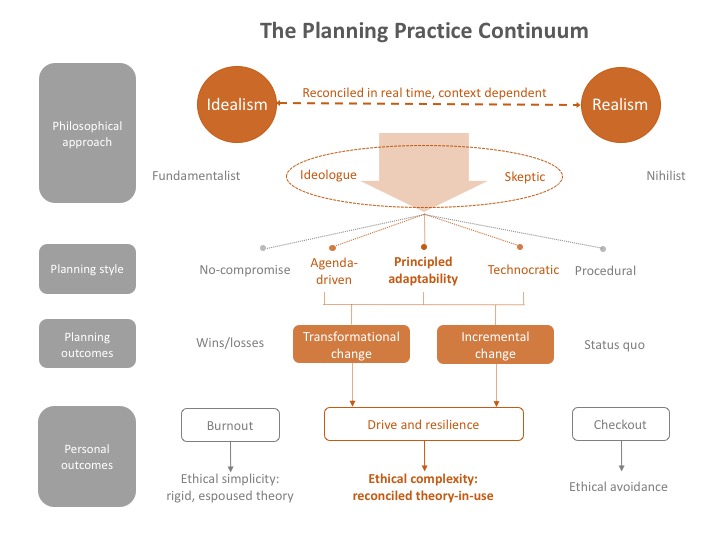
Throughout American history, the nation has faced crises, from economic downturns to global conflicts. Pragmatism comes to the fore during these times, as leaders must make tough decisions based on immediate needs and long-term consequences. The New Deal during the Great Depression and the response to the 9/11 attacks are notable examples of pragmatic policy responses.
Throughout American history, the nation has faced crises that have tested its resilience and adaptability. These crises, whether they be economic downturns or global conflicts, have consistently demanded a pragmatic approach from its leaders. Pragmatism, in the context of governance, refers to the prioritization of practicality and effectiveness over rigid adherence to ideology or dogma. When the going gets tough, as it often does in the complex landscape of geopolitics and economics, pragmatism emerges as a guiding principle for decision-makers.
One of the most iconic instances of American pragmatism in action was the New Deal during the Great Depression. Faced with a devastating economic collapse that left millions unemployed and the nation in despair, President Franklin D. Roosevelt’s administration took swift and unprecedented action. The New Deal encompassed a wide range of programs and policies aimed at reviving the economy, providing relief to the suffering, and reforming the financial system. While some of its initiatives were experimental and met with opposition, the overall approach was grounded in pragmatism. The government recognized the immediate need to alleviate suffering and spur economic recovery, while also considering the long-term consequences of its actions. In doing so, it set a precedent for the government’s role in economic stabilization and social welfare.
Another momentous example of pragmatic policy responses occurred in the wake of the 9/11 attacks. The terrorist attacks on September 11, 2001, presented an unprecedented challenge to national security. In the aftermath, the United States had to strike a balance between protecting the nation from further threats and upholding its democratic values. The response, which included the creation of the Department of Homeland Security and the passage of the USA PATRIOT Act, showcased a pragmatic approach. The government had to act swiftly to address immediate security concerns while navigating the complex ethical and legal considerations surrounding civil liberties and individual rights. It was a fine line to walk, and the decisions made during this period reflected a pragmatic understanding of the need for both safety and the preservation of core American values.
In both these historical instances, and in countless others, pragmatism has played a crucial role in guiding American leaders through turbulent times. It underscores the importance of adaptability and the willingness to depart from rigid ideologies when the nation’s well-being is at stake. While ideology and principles remain essential, pragmatic decision-making reminds us that flexibility and a focus on practical solutions are often the keys to successfully navigating crises and shaping the course of history. As America continues to face new challenges in an ever-changing world, the lessons of pragmatism from its past will undoubtedly remain relevant and influential in shaping its future.
To expand your knowledge on this subject, make sure to read on at this location: Democratic Governance in a Pragmatist Key | Pragmatist …

Pragmatism values evidence and data in policymaking. It emphasizes the importance of gathering information and seeking expert advice to craft effective policies. This commitment to empiricism has led to advancements in areas like healthcare, environmental protection, and education.
Pragmatism values evidence and data in policymaking, placing a strong emphasis on the crucial role of gathering information and seeking expert advice to craft effective policies. This commitment to empiricism has proven to be instrumental in driving progress and innovation across various sectors.
In the realm of healthcare, the reliance on evidence-based practices has revolutionized patient care. Medical professionals now draw upon extensive research and clinical trials to make informed decisions, resulting in more accurate diagnoses, improved treatment protocols, and better patient outcomes. This approach has not only saved countless lives but has also contributed to the development of cutting-edge medical technologies and pharmaceuticals.
Environmental protection has also benefited significantly from a pragmatic approach. Policymakers, guided by scientific data, have implemented regulations aimed at curbing pollution, conserving natural resources, and combating climate change. As a result, we have seen a reduction in harmful emissions, the preservation of critical ecosystems, and a global shift towards sustainable energy sources. Pragmatism in this context has not only safeguarded our planet but also spurred the growth of green industries and job opportunities.
In the field of education, the application of evidence-based strategies has enhanced learning outcomes and educational equity. By analyzing educational research and consulting with experts in pedagogy, policymakers have implemented reforms that address the diverse needs of students. These initiatives have led to improved teaching methods, better student engagement, and narrowing achievement gaps, ultimately empowering individuals to reach their full potential.
In conclusion, pragmatism’s unwavering commitment to evidence and data-driven decision-making has ushered in a new era of progress and innovation. Whether in healthcare, environmental protection, or education, this approach has not only improved the quality of life for countless individuals but has also driven advancements that benefit society as a whole. As we continue to face complex challenges, the value of pragmatism in policymaking remains indispensable in our quest for a brighter and more prosperous future.
Looking for more insights? You’ll find them right here in our extended coverage: 2. RESULTS – In what ways do cultural contexts influence the …
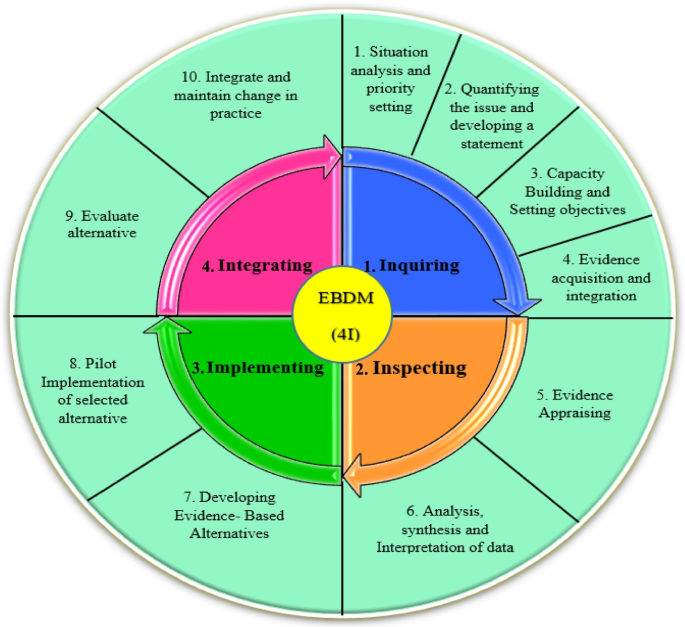
In a polarized political landscape, pragmatism often necessitates bipartisanship. Compromise across the aisle is essential to pass legislation that addresses complex problems. The Civil Rights Act of 1964, which resulted from bipartisan efforts, is a historic example of pragmatic policymaking.
In a polarized political landscape, pragmatism often necessitates bipartisanship. Compromise across the aisle is essential to pass legislation that addresses complex problems. The Civil Rights Act of 1964, which resulted from bipartisan efforts, is a historic example of pragmatic policymaking. This landmark legislation not only reshaped the American social fabric but also serves as a timeless testament to the power of finding common ground in the pursuit of justice and equality.
The Civil Rights Act of 1964 stands as a shining example of how pragmatism can triumph over ideological divides. At the time, the United States was grappling with deep-seated racial discrimination and segregation. The urgent need for change was undeniable, but the political climate was fraught with tension and resistance.
Yet, pragmatic leaders from both sides of the aisle recognized the imperative for progress. They understood that the perpetuation of racial injustice was not only morally indefensible but also detrimental to the nation’s unity and global standing. This shared realization fueled extensive negotiations, debates, and compromises that ultimately resulted in the passage of the Civil Rights Act.
The Act’s significance extended far beyond desegregation. It tackled employment discrimination, voting rights, and public accommodations, among other issues. Its bipartisan passage demonstrated that, even in the face of deeply entrenched divisions, lawmakers could come together to address pressing societal challenges.
The legacy of the Civil Rights Act endures today as a reminder of what can be achieved when pragmatism guides policymaking. It serves as a beacon of hope for those seeking solutions to the pressing issues of our time, such as healthcare reform, climate change, and immigration reform. In these complex and polarized debates, finding common ground through compromise remains essential.
Furthermore, the Civil Rights Act underscores the enduring value of bipartisan cooperation. It shows that, when the greater good is prioritized over partisan interests, transformative change can occur. In an era where political polarization continues to test the resilience of democratic systems, the spirit of the Civil Rights Act reminds us of the potential for unity in pursuit of a more just and equitable society.
In conclusion, the Civil Rights Act of 1964 exemplifies the power of pragmatism and bipartisanship in shaping impactful policy. It serves as a historic reminder that, in the face of seemingly insurmountable divisions, compromise can lead to significant progress and lay the foundation for a more inclusive and just society. This lesson remains relevant and inspirational as we confront the challenges of our own time.
Should you desire more in-depth information, it’s available for your perusal on this page: Partnership among cities, states, and the federal government …
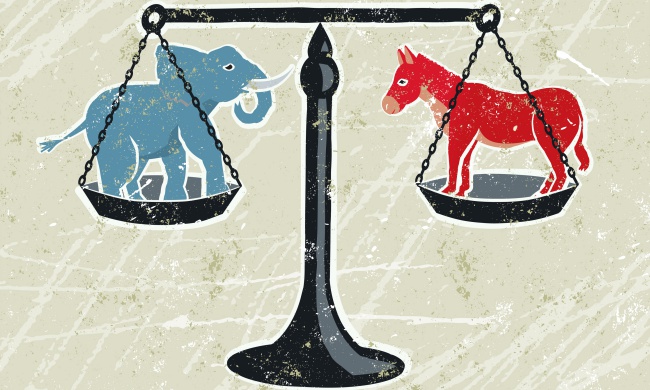
Pragmatism allows American politics to adapt to evolving societal needs and challenges. Policies on issues like marriage equality, climate change, and healthcare have shifted over time in response to changing public opinion and circumstances.
Pragmatism, as a guiding principle in American politics, plays a crucial role in ensuring that policies remain responsive to the ever-evolving needs and challenges of society. This adaptability is particularly evident in the way policies have evolved on critical issues such as marriage equality, climate change, and healthcare.
Marriage Equality: The journey toward marriage equality in the United States exemplifies the impact of pragmatism in policymaking. While the issue of same-sex marriage was once highly contentious, evolving public opinion and legal developments gradually shifted the landscape. Pragmatic politicians and leaders recognized the growing support for marriage equality and the inevitability of change. Consequently, they worked to align policy with the changing societal consensus. The Supreme Court’s decision in Obergefell v. Hodges in 2015 legalized same-sex marriage nationwide, reflecting the culmination of a pragmatic approach that responded to shifting public sentiment and advancing civil rights.
Climate Change: Climate change is a complex and urgent challenge that requires adaptive policies. Pragmatism recognizes the overwhelming scientific consensus on climate change and the need for mitigation and adaptation measures. Over time, as the effects of climate change have become more apparent, and as the global community has rallied for action, American politics has adjusted its approach. Pragmatic solutions have included renewable energy investments, emissions reductions targets, and international agreements like the Paris Agreement. These actions demonstrate a willingness to address the evolving challenge of climate change while also considering the economic and social implications.
Healthcare: The healthcare landscape in the United States has seen significant policy shifts driven by pragmatism. The Affordable Care Act (ACA), often referred to as Obamacare, represents a pragmatic response to the complex healthcare system. It aimed to expand access to healthcare, address preexisting condition limitations, and reduce the number of uninsured Americans. While the ACA has faced political debates and legal challenges, it reflects an attempt to adapt to the changing healthcare needs of the population. As healthcare remains a prominent concern for Americans, discussions about further healthcare reform and improvements continue.
In each of these cases, pragmatism has allowed policymakers to navigate the changing tides of public opinion, scientific consensus, and societal demands. It acknowledges that policies must be flexible and responsive to effectively address the evolving challenges faced by the nation. Furthermore, it underscores the importance of data-driven decision-making, scientific expertise, and a willingness to adjust course when necessary.
While pragmatism is a powerful tool in policymaking, it is not without its challenges. Balancing immediate needs with long-term goals, navigating partisan divisions, and managing public perceptions can be complex. However, its ability to adapt and respond to evolving circumstances remains a key asset in ensuring that American policies remain relevant and effective in addressing the ever-changing landscape of societal needs and challenges.
Explore this link for a more extensive examination of the topic: 5 New YorkElite Pragmatism and Managerialism | The Politics of …

While pragmatism is a valuable tool in American politics, it faces challenges:
While pragmatism is a valuable tool in American politics, it faces challenges that highlight the complexities of navigating the political landscape in the United States. One of the foremost challenges lies in balancing short-term goals with long-term visions. Pragmatism often emphasizes immediate, achievable solutions, which can sometimes overshadow the importance of addressing underlying systemic issues. Policymakers must strike a delicate balance between addressing pressing concerns and laying the foundation for sustainable, equitable, and forward-thinking policies that benefit future generations.
Another challenge of pragmatism in American politics is the potential for compromise that dilutes the core values and principles of a political party or movement. In the pursuit of practical solutions and bipartisan cooperation, there is a risk of sacrificing ideological integrity. Striking this balance between compromise and maintaining the fundamental values that define a political identity is an ongoing challenge that political leaders grapple with.
Additionally, the influence of interest groups and lobbyists can sometimes steer pragmatic decisions away from the public interest. Pragmatic solutions may align with the interests of powerful stakeholders rather than the broader population. Navigating these vested interests while upholding the principles of fairness and accountability can be a formidable challenge.
Moreover, the polarization of American politics poses a significant hurdle to pragmatism. In an increasingly divided political climate, finding common ground and achieving consensus on pragmatic solutions can be exceedingly difficult. Ideological rigidity can hinder the adoption of practical policies that could otherwise address critical issues facing the nation.
Lastly, the challenge of public perception must be considered. Pragmatism can sometimes be misinterpreted as a lack of conviction or principled stance, leading to skepticism or mistrust among voters. Communicating the value of pragmatism as a means to achieve concrete results while remaining faithful to overarching principles is an ongoing communication challenge for politicians.
In conclusion, while pragmatism is a valuable approach in American politics, it faces challenges related to balancing short-term and long-term goals, maintaining ideological integrity, countering the influence of interest groups, navigating political polarization, and effectively communicating its merits to the public. Addressing these challenges is crucial for the successful application of pragmatism in shaping policies that serve the best interests of the American people.
Don’t stop here; you can continue your exploration by following this link for more details: 5 New YorkElite Pragmatism and Managerialism | The Politics of …

The current political climate is marked by increasing polarization, making it difficult to find common ground and pass pragmatic legislation.
The current political climate is marked by increasing polarization, making it difficult to find common ground and pass pragmatic legislation. This growing divide has resulted in a gridlock that hinders progress and leaves many critical issues unresolved. In such an environment, it’s crucial for leaders and citizens alike to prioritize open, constructive dialogue and seek compromise. By actively bridging the gap and working together, we can restore faith in our political system, break the cycle of polarization, and pave the way for effective governance that addresses the pressing challenges of our time.
Looking for more insights? You’ll find them right here in our extended coverage: We need political parties. But their rabid partisanship could destroy …
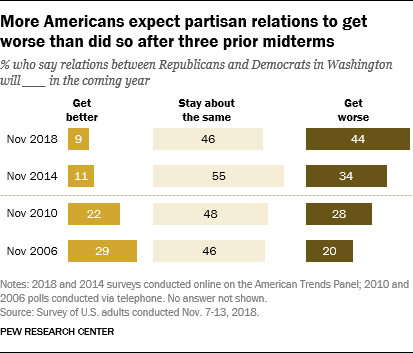
Pragmatism can sometimes prioritize short-term solutions over long-term planning, leading to policy decisions that may not address the root causes of issues.
Pragmatism, with its focus on practicality and immediate problem-solving, undeniably has its merits, but it can also carry inherent risks when it comes to policymaking. While it excels at addressing pressing issues swiftly, it may inadvertently sideline the crucial aspect of long-term planning and the systemic root causes of these issues.
One of the primary concerns with a purely pragmatic approach is the potential for short-sightedness. Policies that prioritize quick fixes often fail to consider the far-reaching consequences and unintended side effects that can emerge over time. In essence, while they may temporarily alleviate a problem’s symptoms, they may neglect the deeper structural issues that perpetuate it.
Moreover, the pursuit of immediate solutions can sometimes lead to a reactive rather than a proactive stance. This reactive stance often means that resources and efforts are channeled towards managing crises rather than preventing them. By not addressing the root causes, policymakers risk finding themselves in a perpetual cycle of addressing recurring issues without making substantial progress toward their resolution.
Additionally, a pragmatic approach may sometimes favor politically expedient solutions over those that require sustained effort and sacrifice. In a world where political cycles are often relatively short, there may be little incentive for policymakers to tackle complex, long-term problems when they can gain more immediate political capital from simpler, short-term wins.
Balancing pragmatism with a more comprehensive, long-term perspective is a key challenge for effective governance. While there is a definite need for quick responses to urgent issues, it is equally important to ensure that these responses are part of a broader strategy that addresses the underlying causes, aiming for lasting, sustainable change. By doing so, policymakers can strike a more harmonious balance between addressing immediate needs and building a foundation for a better, more resilient future.
Should you desire more in-depth information, it’s available for your perusal on this page: Handbook of Public Policy Analysis: Theory, Politics, and Methods
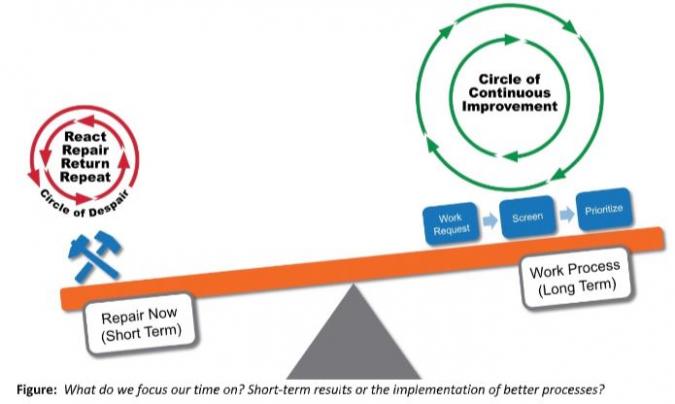
In an era of heightened political activism, some view pragmatism as compromising on principles. This perception can lead to skepticism and criticism.
In an era of heightened political activism, some view pragmatism as compromising on principles. This perception can lead to skepticism and criticism, but it’s essential to recognize that pragmatism isn’t necessarily a betrayal of one’s principles; rather, it’s a strategic approach to achieve meaningful change.
Pragmatism acknowledges the complexities of the political landscape and the need to navigate it effectively. It doesn’t mean abandoning one’s core values or convictions; instead, it involves finding common ground and incremental steps towards progress. In a world marked by diverse perspectives and interests, pragmatism often becomes a bridge that allows different factions to work together for the greater good.
Critics argue that pragmatism can dilute the impact of social and political movements, making them less radical or revolutionary. However, history has shown that lasting change often requires a balance between idealism and pragmatism. Visionaries who can effectively translate their principles into actionable policies often leave a more enduring legacy.
Moreover, pragmatism isn’t static; it evolves with changing circumstances and the evolving needs of society. What may have been considered a pragmatic compromise in the past may no longer be viable or relevant today. Therefore, it’s crucial to view pragmatism as a tool that adapts to the times, rather than as a fixed ideology.
In essence, while skepticism toward pragmatism is understandable, it’s equally important to appreciate its role in navigating the complex and ever-shifting landscape of politics and social change. Balancing principles with practicality is a delicate art that requires strategic thinking and adaptability, and it remains a crucial aspect of making meaningful progress in our increasingly dynamic world.
To delve further into this matter, we encourage you to check out the additional resources provided here: III: Governmental and Administrative Institutions/Institutions …

Pragmatic solutions to complex problems may not always resonate with the public, who may prefer simpler, more emotionally appealing approaches.
Pragmatic solutions to complex problems may not always resonate with the public, who may prefer simpler, more emotionally appealing approaches. While pragmatism is often grounded in evidence-based reasoning and a rational assessment of the situation, it can sometimes be overshadowed by the allure of emotionally charged solutions. This preference for simplicity and emotional resonance might be attributed to various factors, such as cognitive biases, limited attention spans, or the human desire for quick and easily digestible answers.
However, it’s crucial to recognize that the efficacy of a solution should not be determined solely by its emotional appeal or simplicity. Complex issues often require nuanced, multifaceted approaches that may not provide instant gratification but are more likely to yield sustainable, long-term results. Striking a balance between pragmatism and emotional resonance can be a challenge, but it is essential for addressing the intricate problems that society faces. Education and effective communication can play a significant role in helping the public understand the value of pragmatic solutions and their potential to create lasting positive change.
You can also read more about this here: Ideal and Actual in Dewey’s Political Theory | Pragmatism and Justice

Conclusion
Pragmatism is a driving force in American politics, guiding policymakers in their efforts to address the nation’s most pressing challenges. It recognizes the importance of finding workable solutions, even in the face of ideological divides. While it faces obstacles in today’s political landscape, the spirit of pragmatism remains a vital tool for shaping policy that can improve the lives of all Americans. Balancing idealism with pragmatism is the hallmark of a pragmatic democracy, where the pursuit of progress is driven by the art of the possible.
Pragmatism is a driving force in American politics, guiding policymakers in their efforts to address the nation’s most pressing challenges. It recognizes the importance of finding workable solutions, even in the face of ideological divides. While it faces obstacles in today’s political landscape, the spirit of pragmatism remains a vital tool for shaping policy that can improve the lives of all Americans. Balancing idealism with pragmatism is the hallmark of a pragmatic democracy, where the pursuit of progress is driven by the art of the possible.
In the contemporary political arena, the need for pragmatism is more critical than ever. The United States faces a multitude of complex issues, from healthcare reform and income inequality to climate change and national security. These challenges often come with deeply entrenched ideological positions, making it challenging to find common ground. However, the pragmatic approach reminds us that progress should not be sacrificed on the altar of ideology.
One key aspect of pragmatism is its emphasis on evidence-based decision-making. In an era of information overload and misinformation, it becomes increasingly important to rely on facts and expert analysis to formulate effective policies. Pragmatic policymakers understand the value of data-driven approaches, which can help identify the most efficient and equitable solutions to complex problems.
Furthermore, pragmatism encourages policymakers to be adaptive and open to compromise. It acknowledges that no single party or ideology has a monopoly on good ideas. Collaboration and negotiation become essential tools in achieving meaningful policy outcomes. For instance, when addressing immigration reform, a pragmatic approach would involve listening to various stakeholders, considering the economic and humanitarian aspects, and finding a balanced solution that addresses border security concerns while respecting the rights and dignity of immigrants.
However, it’s important to recognize that pragmatism is not without its challenges in the modern political landscape. Polarization, extreme partisanship, and the influence of special interests can hinder pragmatic decision-making. Some argue that compromise is seen as a weakness, and the pursuit of ideological purity often takes precedence over the pursuit of practical solutions. Yet, history has shown that some of the most impactful policies, such as Social Security and Medicare, were born out of pragmatic negotiations that bridged political divides.
In essence, pragmatism is a timeless principle that can help bridge the gap between idealism and real-world governance. It reminds us that while we may have lofty ideals and visions for our nation, we must also be willing to roll up our sleeves, engage in the messy work of politics, and find practical solutions that can make a tangible difference in the lives of everyday Americans.
As we navigate the challenges of the 21st century, the spirit of pragmatism remains a beacon of hope for a more effective and inclusive democracy. It is the reminder that, despite our differences, we share a common interest in creating a better future, and that pursuit is best achieved when guided by the principles of pragmatism and the art of the possible.
Looking for more insights? You’ll find them right here in our extended coverage: Isolationism and U.S. Foreign Policy After World War I | Norwich …
More links
Don’t stop here; you can continue your exploration by following this link for more details: Pragmatism as a Research Paradigm and Its Implications for Social …
